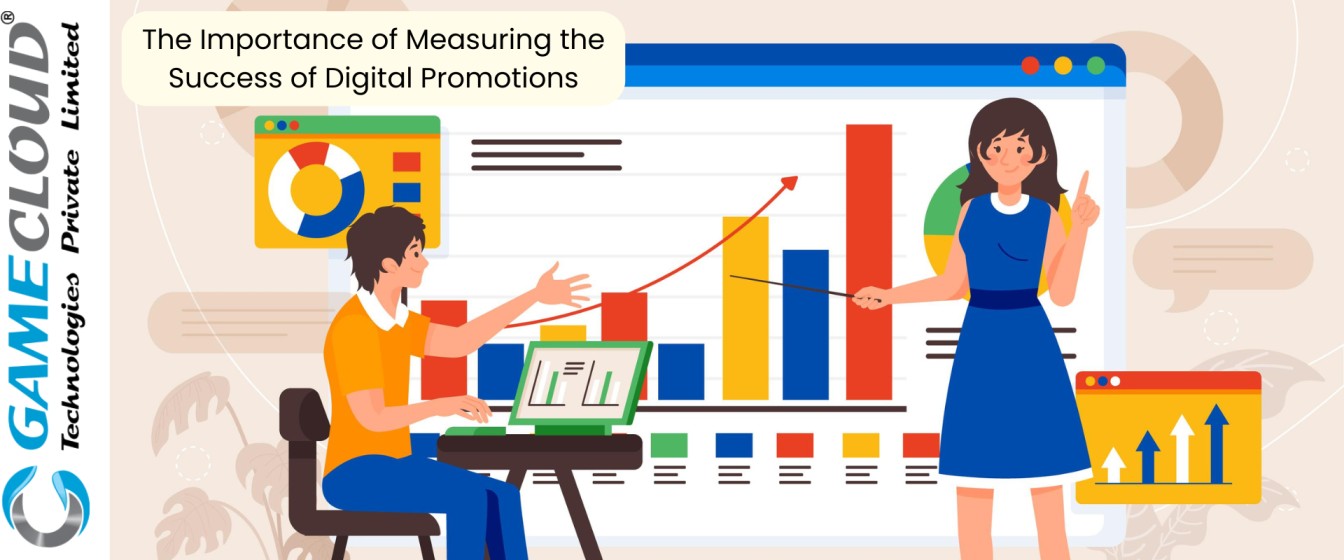
In the rapidly evolving online landscape, businesses are increasingly turning to digital promotions to engage customers and drive sales. Unlike broader online strategies, digital promotions focus specifically on time-limited offers, contests, or special events designed to stimulate immediate action from consumers. Measuring the success of these targeted campaigns is crucial for optimizing future efforts and maximizing return on investment (ROI).
Understanding Digital Promotions
Digital promotions are distinct from other online strategies in their focused, time-sensitive nature. They typically include:
- Limited-time discounts or offers
- Online contests or sweepstakes
- Flash sales
- Exclusive access to products or services
- Virtual events or webinars
- Typical online postings & messaging
These promotions aim to create a sense of urgency and exclusivity, driving immediate engagement and conversions.
Key Performance Indicators (KPIs) for Digital Promotions
To effectively measure the success of digital promotions, businesses should track key performance indicators (KPIs) tailored to their promotional objectives. The conversion rate, which is the percentage of users who complete the desired action like making a purchase or signing up for an event, is a crucial metric. The click-through rate (CTR) measures the effectiveness of promotional content in encouraging users to click through to the offer landing page. The engagement rate assesses how users interact with promotional content across various platforms. Additionally, the customer acquisition cost (CAC) calculates the cost of acquiring a new customer through the promotion, while the return on investment (ROI) measures the overall profitability of the promotion.
Advanced Measurement Techniques
To gain deeper insights into promotional performance, consider implementing these advanced techniques:
- Multi-touch Attribution: Assigns credit to various touchpoints in the customer journey, providing a more nuanced view of the promotion’s impact.
- Cohort Analysis: Groups users based on shared characteristics or experiences to identify patterns in promotional effectiveness.
- Incrementality Testing: Measures the true impact of a promotion by comparing outcomes between test and control groups.
Utilizing AI and Machine Learning
Artificial Intelligence (AI) and Machine Learning (ML) can significantly enhance the measurement and optimization of digital promotions. Predictive analytics leveraging ML algorithms can forecast promotional performance based on historical data and current market trends. Natural Language Processing (NLP) techniques can analyze customer feedback and social media sentiment related to promotions, providing valuable insights. AI-driven dynamic pricing strategies can adjust in real time based on demand and competitor actions during promotional periods.
Case Study: E-commerce Flash Sale
An e-commerce platform implemented a 24-hour flash sale promotion for electronics. By utilizing advanced measurement techniques, they gained the following insights:
- The conversion rate peaked 6 hours into the promotion, suggesting optimal timing for future events.
- Mobile users showed 25% higher engagement rates compared to desktop users.
- Cohort analysis revealed that customers acquired during the promotion had a 15% higher lifetime value compared to non-promotional acquisitions.
- Incrementality testing demonstrated that the promotion drove a 35% increase in sales compared to the control group.
These insights allowed the company to refine their promotional strategy, resulting in a 40% increase in ROI for subsequent campaigns.
Digital Promotion Services of Promocious
Promocious, a division of GameCloud Technologies, offers a range of services that can be effectively integrated to measure the success of digital promotions. Our services include online brand presence creation, social media and forum promotions, organic online growth, email marketing, online reputation management, content creation, influencer collaborations, and utilizing the gamer and streamer network for reviewing the services or products of our clients. By utilizing our services, businesses can gain valuable insights into the effectiveness of their digital campaigns, allowing them to make data-driven decisions and optimize our strategies for maximum impact and return on investment.
Conclusion
Measuring the success of digital promotions is not just about tracking basic metrics; it requires a sophisticated approach that combines advanced analytics, AI-driven insights, and a deep understanding of customer behavior. By implementing robust measurement strategies, businesses can continuously refine their promotional efforts, ensuring each campaign delivers maximum impact and drives sustainable growth in the competitive online landscape. As technology continues to evolve, so too will the methods for measuring promotional success. Staying ahead of these trends and adopting cutting-edge measurement techniques will be crucial for businesses looking to maximize the effectiveness of their digital promotions in the years to come.
